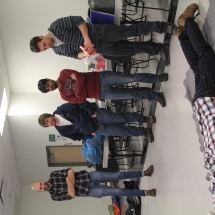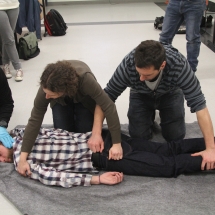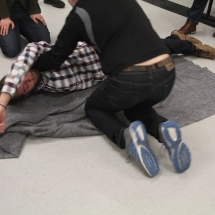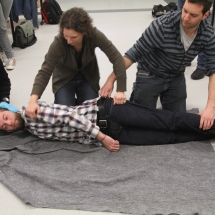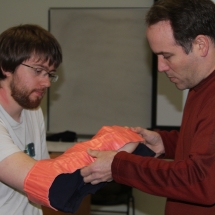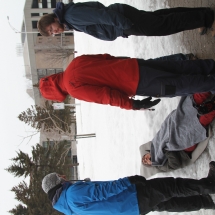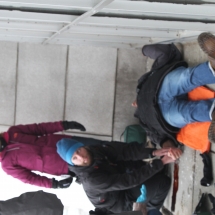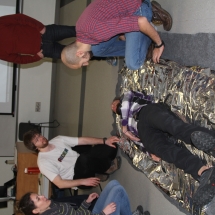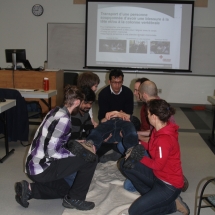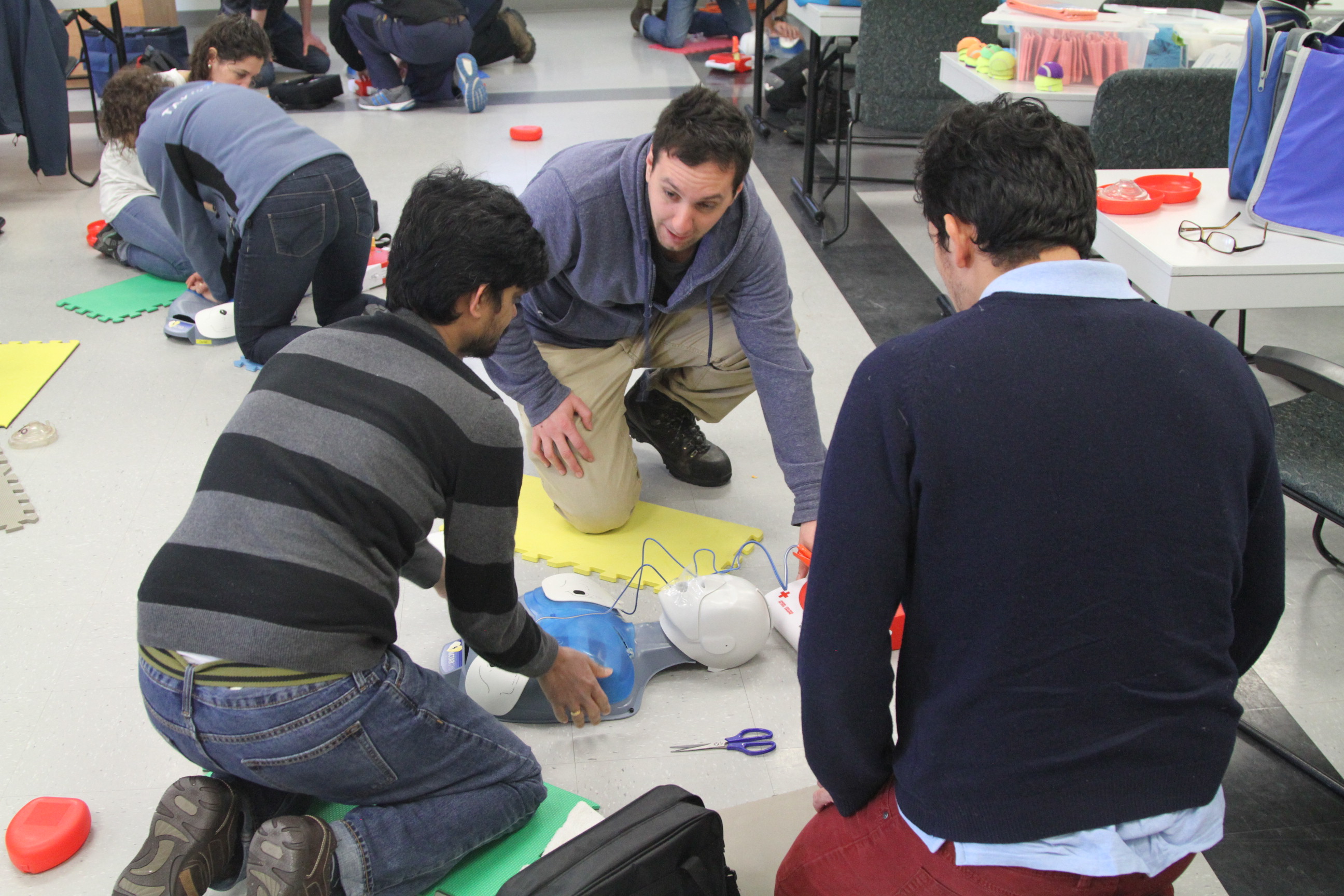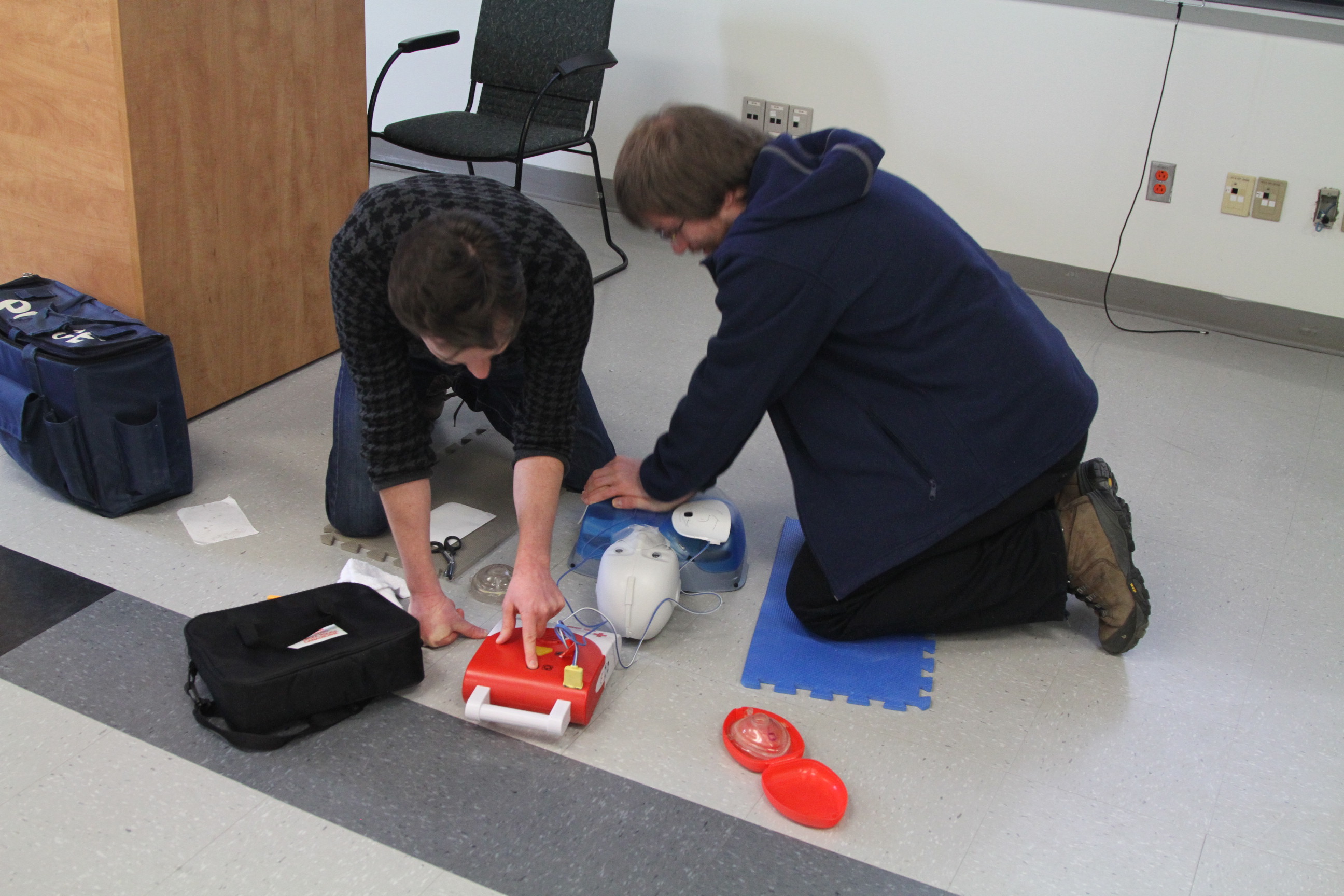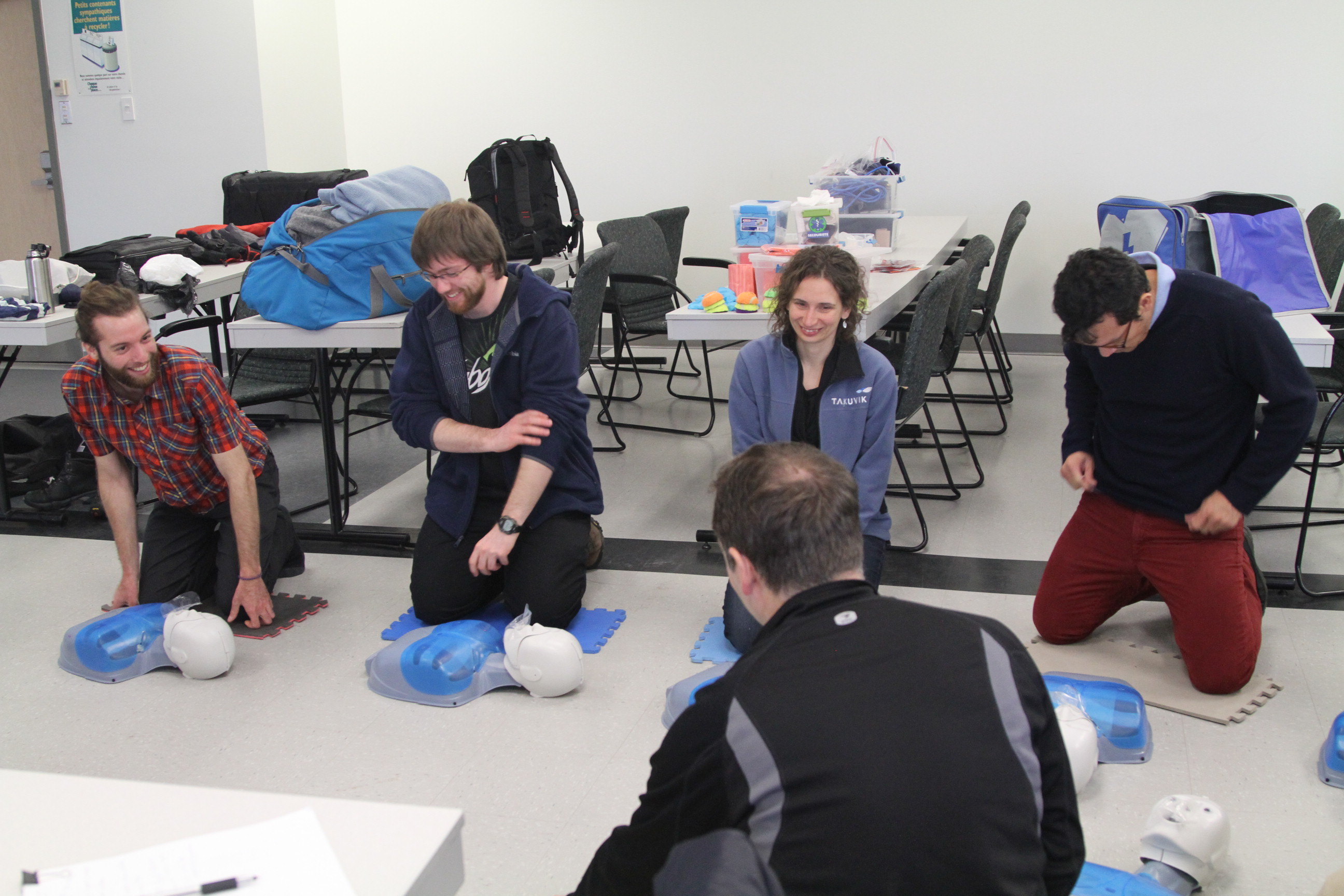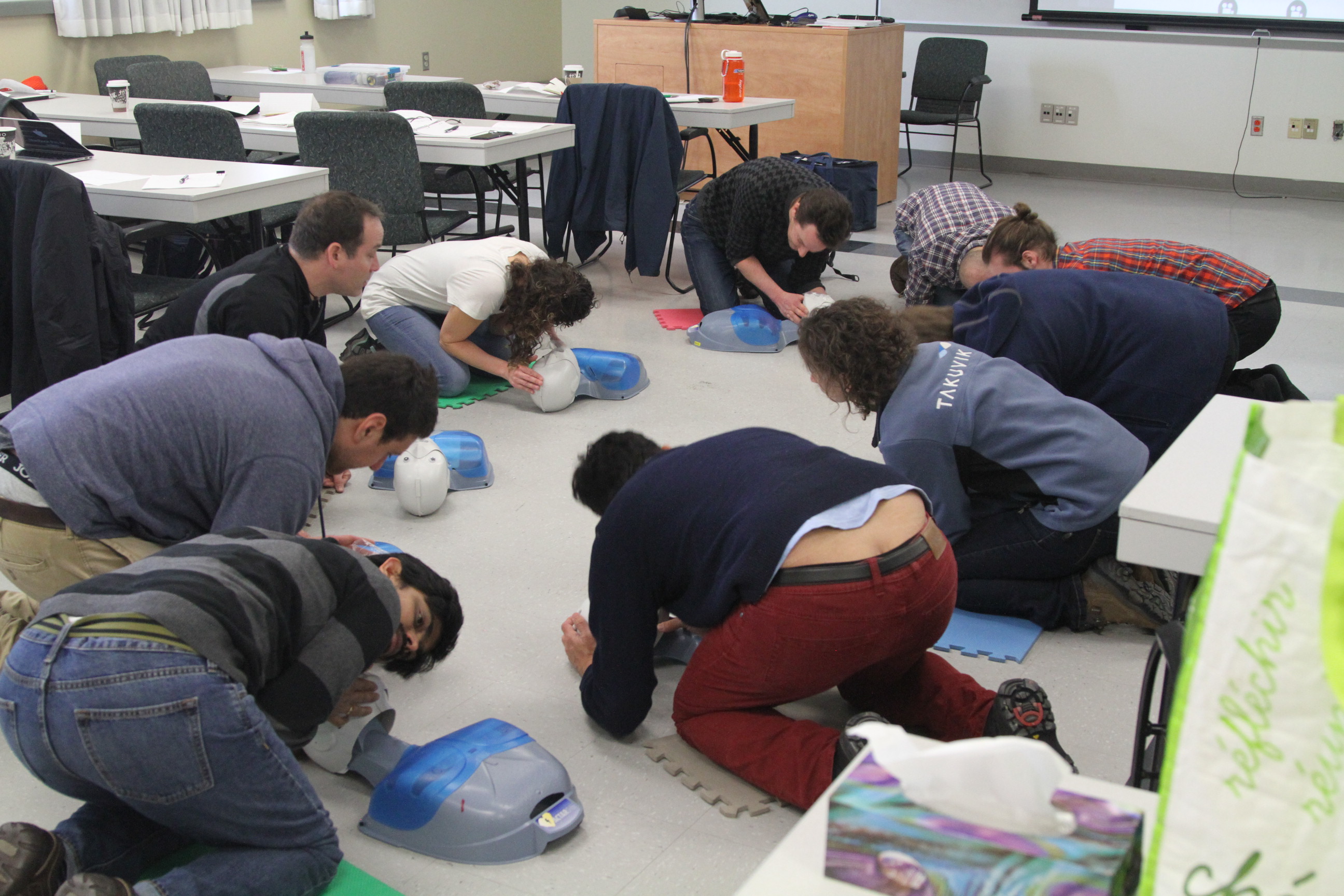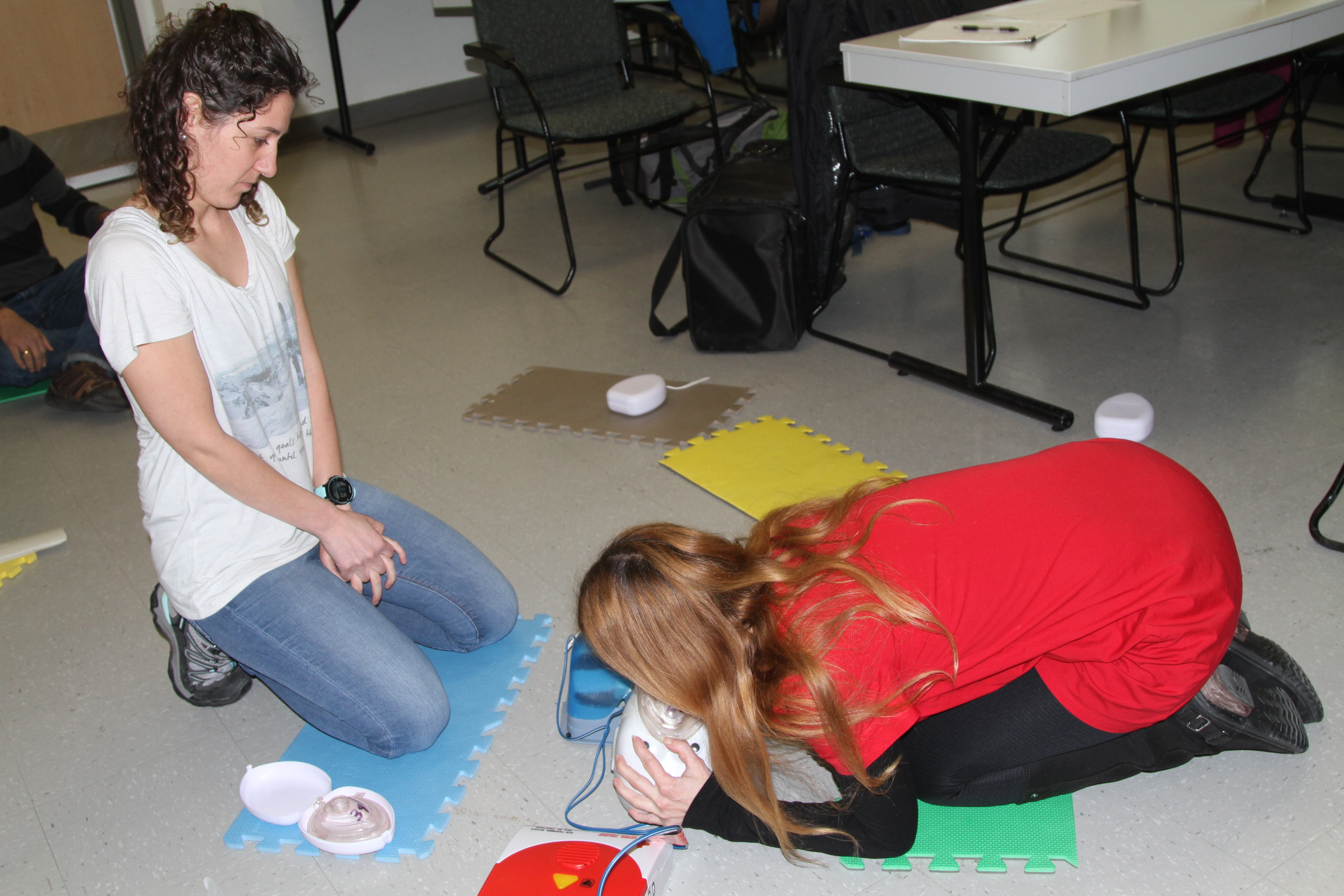Before the campaigns: Wilderness & Remote First Aid training
The Takuvik team recently completed Wilderness & Remote First Aid (WRFA) training, in order to be prepared for the conditions of a remote ice camp located 30 km away from the Inuit community of Qikiqtarjuaq, where we are going to conduct our Green Edge Project research campaigns. Frostbite and hypothermia will be the main risks to be avoided.
Intended for individuals who need high-level training to work in remote and wilderness areas and to intervene in emergency situations, the Wilderness & Remote First Aid program, given by SECOURISME RCR Québec , is an enhancement of standard First Aid concepts to meet the demands of remote environments.
Wilderness & Remote First Aid
In remote areas you could have difficulty accessing emergency services. The ramifications of time and distance on the outcome of a situation in remote areas demands that the person administering the first aid understands the differences inherent in managing care. The training also imparts advanced strategies to provide extended care for more than 24 hours.
Through reality-based scenarios, our team learned how and why WRFA applies a higher level of care. Part of the course is given outdoors and requires that participants are in good physical condition and have greater endurance, compared to a typical first aid training.
Beyond understanding the differences in practice between WRFA and traditional first aid, our team was exposed to realistic remote first aid sitiations and learned essential leadership, application of principled approaches, and management of environmental threats. With an emphasis on practical skills, decision-making, and dealing with the outdoors.
Following the program, our team learned WRFA techniques and cardiopulmonary resuscitation (CPR), a lifesaving technique useful in many emergencies, including heart attacks and near drownings.
